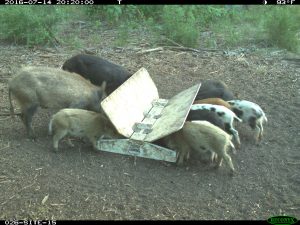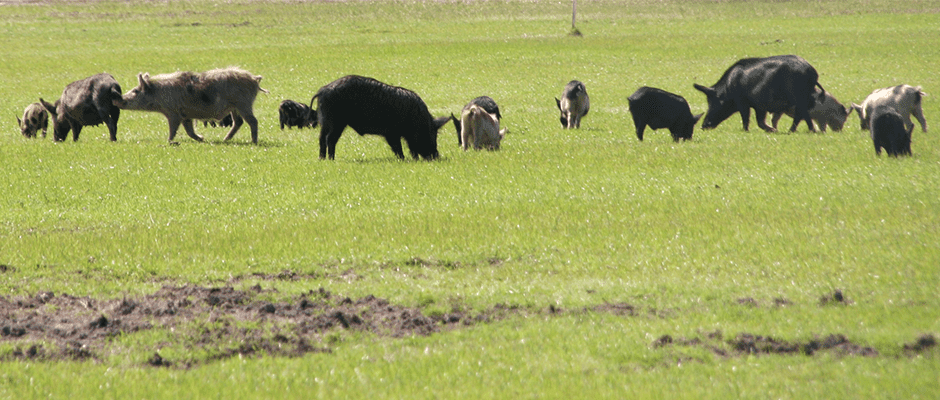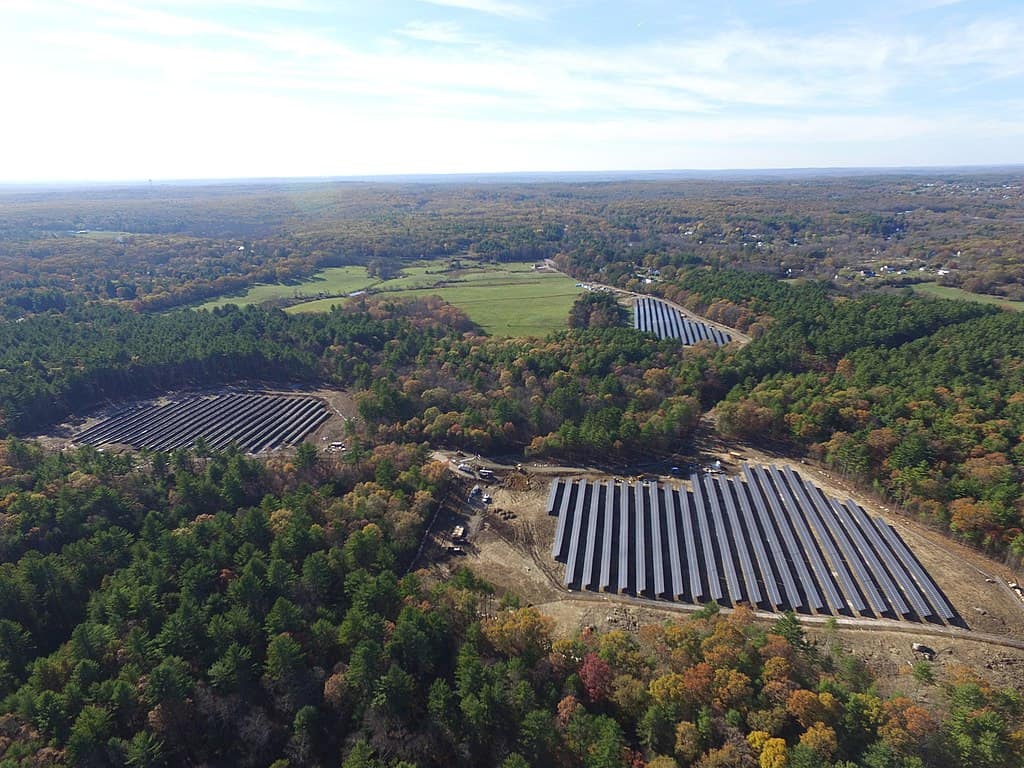Share this article
Toxic bait field trials on feral swine to begin in January
USDA’s Wildlife Services is set to conduct sodium nitrite toxic bait field trials on free-roaming feral swine in Texas and Alabama this month after its National Wildlife Research Center received an experimental use permit from the Environmental Protection Agency in November.
NWRC researchers Drs. Kurt VerCauteren and Nathan Snow are working closely with WS operations in the two states to identify landowners willing to participate in the study. Three to nine feral swine sounders in each state will be targeted.

A feeding station that takes advantage of swine feeding behaviors and limits access by non-target wildlife will be part of the field tests. Credit: USDA Wildlife Services
The permit is the result of years of collaborative research by WS and multiple private, state, federal and international partners. These field trials will help determine the effectiveness of the sodium nitrite toxic bait for removing feral swine sounders in natural settings, as well as any potential impacts to non-target wildlife.
The bait will be delivered using stations that take advantage of swine feeding behaviors and limit access by non-target wildlife. Following a period of acclimation to confirm feral swine are using the areas, a placebo bait will be replaced with the sodium nitrite toxic bait for two nights. At least 30 feral swine and no more than 30 raccoons in each state’s study area will be radio-collared prior to baiting in order to monitor their movements and bait exposure. Nearby landowners will be notified and signs will be placed on bait stations and along roads leading into the study areas.
“Our captive studies have demonstrated that feral swine are sensitive to the sodium nitrite bait. Now we need to learn how well the bait and our specially-designed bait stations do in natural settings with free-roaming feral swine and native wildlife,” notes VerCauteren. “If the field trials show sodium nitrite to be an effective and low risk toxic bait, this information will aid in our efforts toward final EPA registration.”
For more information, see Question and Answers: Sodium Nitrite Toxic Bait for Feral Swine, and click here to read the TWS policy statement on feral swine.
Header Image: Feral swine gather in a field. Credit: USDA Wildlife Services








